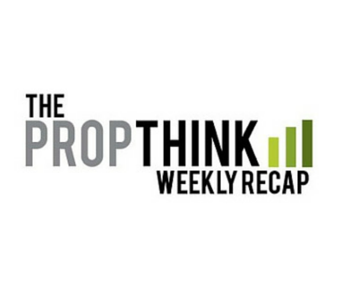The American Society of Hematology’s annual meeting begins this weekend in San Francisco. It’s a big event for the oncology research community, particularly those studying blood cancers, but healthcare investors are paying just as close attention. Much of the new clinical data that emerges at ASH, as with every other year, comes from small and large biopharmaceutical companies, many publicly traded.
In November, we published a primer for ASH, highlighting a number of small-cap companies that would have market-moving data at ASH. The market has already digested results for some of these players following the release of abstracts from the meeting in early November, but the next few days are still important.
Here’s our ASH 2014 primer, published free at PropThink.com just last month.
One name that we’re watching at ASH, and which we’ve discussed regularly during the third quarter, is bluebird bio (BLUE). (Get the full story on this gene therapy company, here) Bluebird will present results for the gene therapy product, LentiGlobin, as a treatment of ß-thalassemia. Early results have been encouraging (if not downright groundbreaking), but ASH offers the next glimpse at the durability of the emerging data.
Shortly after the ASH abstracts dropped in November, Mr. Fink explained how the data at that time might inform what’s coming at the medical conference. He also explained why its so difficult to get a handle on investor expectations – and set some of his own down on paper. Read more about bluebird in the November update, which should give you a sense of what we’re looking for. Additionally, bluebird indicated for the first time this week that their ASH presentation will include initial data from one Sickle Cell Disease patient receiving Lentiglobin. That’s big news, though it’s still good to have tempered expectations. Want the deep-dive report? Get it here.
An oncology company, though not an ASH story, Puma Biotech (PBYI) this week announced a meaningful delay to its plans to file lead drug product, neratinib, for approval in breast cancer. The New Drug Application has been delayed unitl the first quarter of 2016, from previous guidance for a filing in early 2015. PBYI fell 15% as a result.
But the delay has strong implications for PBYI in 2016.
Neratinib is an inhibitor of HER2 that many investors expect will dominate the “extended” adjuvant breast cancer market, used after Roche-Genentech’s (RHHBY) Herceptin (trastuzumab). The new timeline, however, coincides with the completion of Roche-Genentech’s APHINITY trial, testing Herceptin with another HER2 inhibitor, Perjeta (pertuzumab), to determine if the combination is better than Herceptin alone in the adjuvant setting. That data is expected in 2016, most likely during the FDA’s review of neratinib. That’s some serious headline risk for Puma, in less than two years. Read more by clicking here.
We sent out our latest deep-dive research to PropThink Premium readers on Friday, highlighting a small oncology company that’s one of just a few players in the checkpoint regulator space, a segment currently dominated by pharma powerhouses like Bristol-Myers Squibb (BMY) and Merck (MRK). In fact, this company has already partnered with one of the most promising and largest oncology companies globally. 2015 will be a critical year for the pipeline, and in this report, we offered our take on how/when to get involved.
On Friday evening, the DealBook reported that Merck (MRK) is in talks to acquire Cubist Pharmaceuticals (CBST) for more than $7 billion. According to sources, says dealBook, Merck is expected to pay around $100/share for Cubist, valuing the company at close to $7.5 billion, and a 33% premium to Friday’s close for CBST. For now, the deal is just a rumor (that could change by the end of the weekend), but it’s sure to light a fire under other antibiotics developers next week – think Tetraphase (TTPH) and Cempra (CEMP), among others. In addition, whether Merck steps up or not, Cubist may be in play and see new suitors approach.
PropThink began covering CBST in mid-2013 with the clearance of some IP overhang as the stock traded around $35. We’ve taken the stance that Cubist, as the only pureplay antibiotics company with a revenue-generating business, is worth holding as part of a “basket” approach to antibiotics – that’s already been good for more than 100% in just over a year. Read more in our previous coverage of Cubist (much of it for free) by clicking here.
The MRK-for-CBST news (or rumor) was the second big piece of M&A-related news for the week: on Monday, Japan’s Otsuka Pharma took out Avanir Pharmaceuticals (AVNR) at $3.5 billion. Avanir sells NUEDEXTA, a combination of dextromethorphan and quinidine approved in 2010 for pseudobulbar affect; the drug did $26.5 million in the third quarter of 2014. But a new version of the combination, AVP-923, demonstrated in a phase II trial two months ago a statistically significant improvement in agitation associated with Alzheimer’s disease, sending AVNR soaring in the weeks to follow. Read more about the AVNR-Otskua deal, here.
One or more of PropThink’s contributors are long CBST, BLUE, MRK, or BMY.



